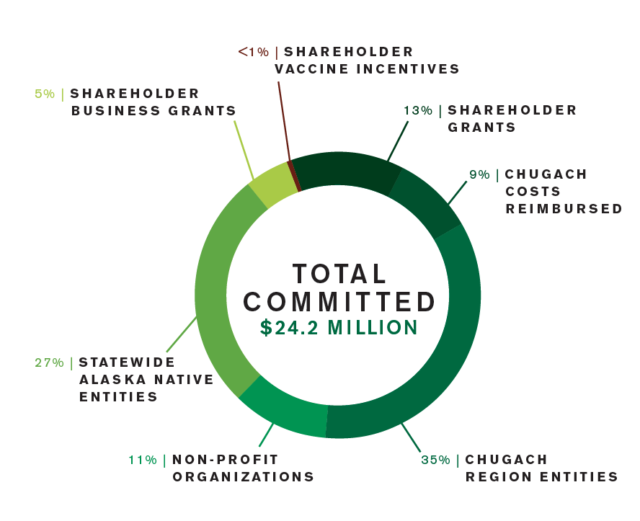 The Coronavirus Aid, Relief, and Economic Security Act (CARES Act) signed into law in March 2020 allocated $2.2 trillion to stem the tide of the economic fallout of the COVID-19 pandemic – $8 billion of which was set aside for Indian tribes to recover economic losses in their communities and lower the health impact of COVID-19.
The Coronavirus Aid, Relief, and Economic Security Act (CARES Act) signed into law in March 2020 allocated $2.2 trillion to stem the tide of the economic fallout of the COVID-19 pandemic – $8 billion of which was set aside for Indian tribes to recover economic losses in their communities and lower the health impact of COVID-19.
Over $500 million of CARES Act funding was to go to Alaska Native Corporations (ANC) to be dispersed to lessen the impact of COVI D-19 on the approximately 140,000 Natives who call Alaska home. Unfortunately, several tribes led by Indigenous Peoples in the Lower 48 filed a lawsuit that blocked ANCs from receiving the much-needed CARES Act funding. At the heart of the lawsuit was the tribal status of ANCs. In June 2021, the Supreme Court issued a landmark decision that ANCs are, in fact, Indian tribes as defined in the Indian Self Determination and Education Assistance Act (ISDEAA). With this ruling, ANCs were granted access to CARES Act funding.
Working within the U.S. Treasury Department’s four-month deadline for usage of the funds (the date for disbursement has since been extended to Sept. 30, 2022, although funds still had to be committed by the end of 2021), and within the stringent restrictions on fund usage, Chugach immediately mobilized its team members and developed a COVID Relief Funds program, including processes and procedures.
Ultimately, Chugach committed $24.2 million to shareholders, shareholder-owned businesses, statewide Alaska Native entities, statewide non-profits, and Chugach region entities.
The funds provided much-needed relief to individual shareholders and their businesses, and also addressed critical needs within our communities:
- Food Security & Subsistence Programs
- Housing & Heating Assistance Programs (including homeless populations)
- Emergency Vehicles
- Health Care Facilities & Clinics
- Health Care Equipment & Supplies
- Hospital Expenses (Ventilators, Testing Equipment, Staffing)
- Disaster Planning & Communications
You can read more about some of the specific projects facilitated through CARES Act funds below:
- Chugach allocated more than $2.4 million in CARES Act funding to the Chugach Regional Resource Commission (CRRC) to improve food security in the Chugach region. Hydroponic cabinets were shipped to villages, capable of producing 20–30 pieces of fresh produce every week, all while operating with a minimal amount of labor. This ‘store-outside-the-door’ sustainable model is strengthening access to fresh, healthy food in areas that struggle with affordable, accessible and nourishing foods.
- Chugach contributed a portion of its COVID-19 relief funds to support a public-private partnership that provides stable housing to people experiencing homelessness in Anchorage.


